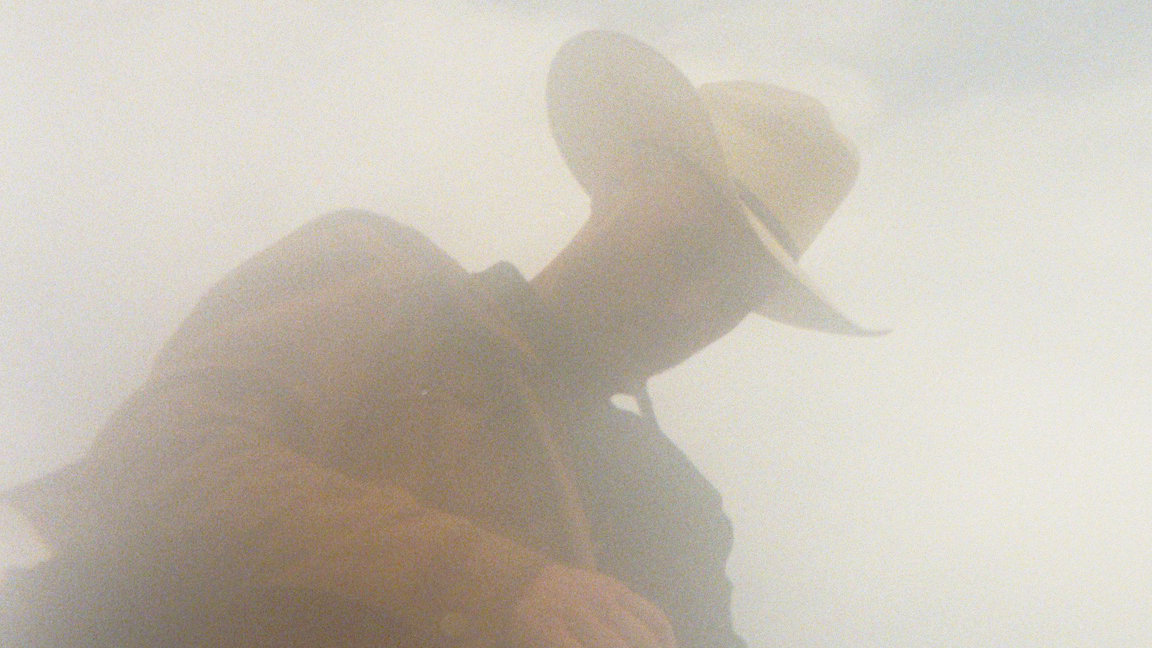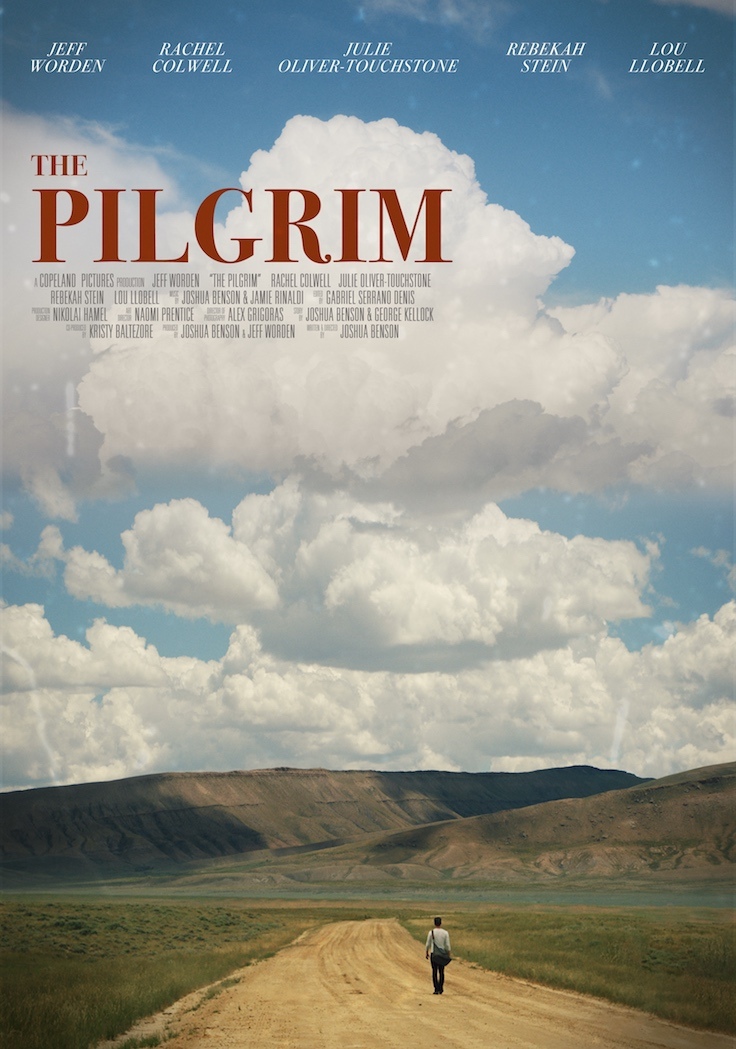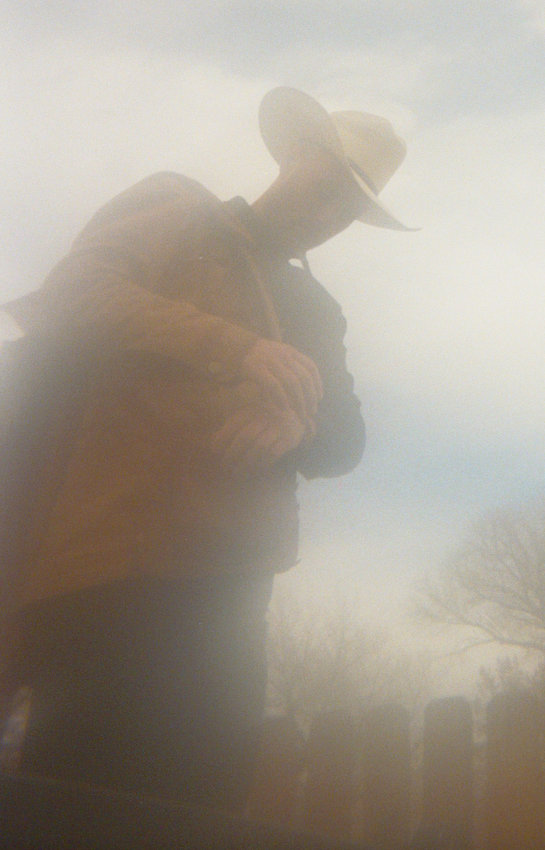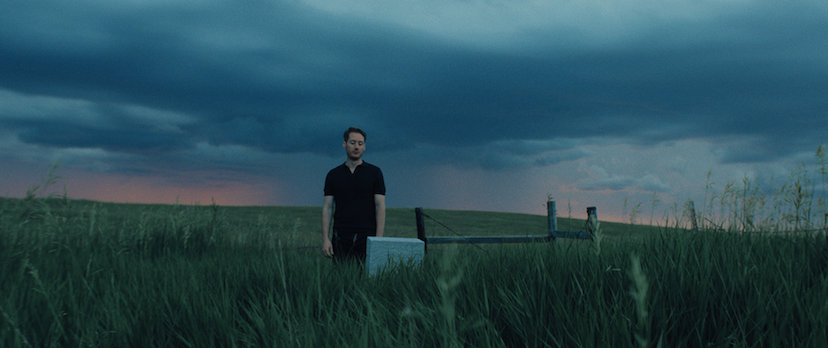
indieactivity: How did you get into filmmaking?
Joshua Benson (JB): Truthfully, I was not someone who grew up loving or caring much about movies. I play a couple of instruments and music was my first real creative outlet. After completing my bachelors (not in film), I was working with my friend casually scoring a few short films. Even now, I score all my own films). None of these projects were particularly engaging.
And somewhere along the line my ego perked up and I went. “Surely you can do better than that!” I was dead wrong, of course. I went on to make dreadful short films myself. I was getting to the point where I needed to take the next step. And filmmaking just happened to be what came up.
What books do you read?
Joshua Benson (JB): There’s not much I’ll turn down when it comes to literature. Fiction, non-fiction, poetry – it all plays. Oddly enough, what I read tends to inform my filmmaking probably more than watching films. I look to books a lot for structure, to see how authors put things together. And how they tease out their themes. That’s a big thing. Story is not paramount for me in movies. Books have the ability to get you into a character’s mind in a different fashion than films.
Watch Official Trailer for The Pilgrim directed by Joshua Benson
I aim to translate those kinds of written moments to the screen, something I find difficult to achieve, but the greater the variety on my bookshelf, the more I have to pull from when it comes to working out those problems. That said, there are certain novels that I’ll lean on time and again: Richard Wright’s The Outsider, N. Scott Momaday’s The Names, Annie Proulx’s Close Range, and John Berger’s Ways of Seeing are always instructive, to name a few.
With your projects, what things do you put in place to deliver a good job?
Joshua Benson (JB): The right team. To ensure that everything comes off, you have to have people who are all singing from the same hymnal. That usually means turning to previous collaborators, because everyone already has some idea of what they are getting into, plus we all understand each other’s strengths and weaknesses. It also helps when you have folks who are filmmakers in their own right; they will inevitably bring their own tastes and perspectives to the project, and having that sort of input leads to good things.
Briefly explain your latest work
Joshua Benson (JB): The Pilgrim is an indie feature that was filmed over the course of two consecutive summers in the US and UK. It tells the story of Will, an American architect living in London, who is thrust into an odyssey through the American West upon learning of his estranged mother’s death. As he transports her remains to their final resting place, he begins to question the man he has become.

Explain key challenges on your last film?
Joshua Benson (JB): The main challenge for this movie was that we needed to shoot in the American West. Locations get cheated all of the time, but that was never going to be acceptable to me with this piece. However, everyone’s basic needs must still be met and all of that costs money, something we had precious little of, so we had to come up with a schedule that would allow us to cover as much ground – both physically and with regard to the script – as we could in a short period of time. It meant hitting multiple locations in a single day and often traveling hundreds of miles to do so.
To accomplish this, we mapped out everything ahead of time, and had contingency plans in case the weather was problematic, a location fell through, we were running behind, and on and on. A lot can be achieved on a small budget – money is rarely an excuse I accept from myself for something not getting done well – but my way of accomplishing that is to plan every little detail out far enough to give ourselves flexibility. The more you plan, the freer you become to let it go and take advantage of the spontaneous moments that happen once the cameras start rolling.
Explain a creative choice you took on the set of your film?
Joshua Benson (JB): There is a moment in the latter bit of the film where the lead character, Will, picks up a woman, Alva, walking to work on the side of the road. After dropping her off, she invites him to stay at the encampment she has with her brother. As night sets in, Alva informs Will he’ll need to sleep on the bed of their truck and offers him blankets. It’s an important moment.

On the day we had to film the scene, things weren’t going according to plan: it was too windy to shoot by firelight as we had hoped and the sun had just set, leaving us without any light (we shot only by natural light). It was one of those moments when the realities of filming on location catches up with you and we were up against it, and as the director, you really have no other option than to make a decision. So while the ambient light had gone, the light in the sky had not. I quickly blocked the scene with Will silhouetted against the sky and the truck in the foreground, having Alva enter and place the blankets on the bed of the truck before exiting. Calling for a wide lens, I then just let the scene play out in one shot and we got what we needed.
That may not seem like a creative choice, but rather one borne from circumstance. That is not the case. The best thing about having a plan is when it goes out the window. There is nothing more freeing. You can storyboard and shot list as much as you like – something I do less and less of – but in a way, that preparation serves as practice. What do you have when the rug gets yanked from underneath you]? You can cut licks up in your room as much as you like, but when it’s showtime, baby, whatever comes out is what you’ve got in the tank. There’s no place to hide. That’s the true creativity you have to offer.
What do you want from an actor during a production?
JB: Bravery. I need them to be fearless and rigorous in their work, to be present in whatever moments arise while filming. There has to be a willingness to explore and go beyond the page; otherwise, the whole thing will fall flat. Now, in order for that to happen, it’s incumbent upon me to create the environment that allows them to feel safe and encourages them to do their best work. I cannot place those demands on someone and offer little in return, but it’s a difficult balance to strike because there are times when you have to let them sort it out on their own. Sometimes they have to fall and they need to be willing to do that, just as I have to be willing let them hit the ground face first.

What do you prefer when working with a crew during a production?
JB: For the sort of films I make, I like to work lean and fast. It adds an immediacy to whatever scene is being photographed, something that I think helps both the cast and crew focus and do their best work. In practical terms, that means having a small band of people – for the bulk of The Pilgrim, we had six people in the crew: director, DP, AC, sound, co-producer, and DIT – who were extremely flexible and adaptable on the fly. It’s a lot of work for everyone who is involved in my films, but I’ve found that people enjoy having more responsibility and the autonomy that can come with it.
Who is your favorite director?
JB: It is difficult to play favorites, so I think I’ll go another way with this: every one of us goes through phases. Currently, I tend to put on Les Blank films when I’m looking for something to watch. He’s a very interesting filmmaker.
Why?
JB: Somehow, despite making documentaries, I feel that his films wind up telling me almost more about him than they do about their subject. It sounds like a bad thing, potentially – obviously if you’re making a doc on a person or subject, you’d like that to be the focus – but I think that says a lot about how personal his movies are. I dig that.
What advice would you give directors around the world?
JB: Make films. If you want to direct or be a filmmaker, it’s really that simple. Make films. Watch films, as well. Find a few directors you like, study their work, get to know how they do it, and understand why you like it. Beyond that, I would say listen and observe. You can’t learn anything by talking. And you need to read. If you don’t read, you’re limiting your potential.
The truth is that growth is vital to your work as a filmmaker, but it’s something that can be a frustrating and uncomfortable proposition most of the time. You have to be willing to take it head on and never relinquish to the demons of fear or doubt – trust yourself. It’s damn hard work. But do not let it ever deter you.
Tell us what you think of the interview with Joshua Benson. What do you think of it? What ideas did you get? Do you have any suggestions? Or did it help you? Let’s have your comments below and/or on Facebook, Instagram, or Twitter.
Joshua Benson Socials
Website
IMDb
Instagram
MORE STORIES FOR YOU
Richard Green Documentary, ‘I Know Catherine, The Log Lady’: Premiere in NYC, LA May 9th
Lynchian Doc I Know Catherine, The Log Lady Makes Hollywood Premiere 4/17, Rollout to Follow
In Camera by Naqqash Khlalid Launch on VOD April 29
Naqqash Khlalid’s Directs Nabhan Rizwan. In Camera stars an EE BAFTA Rising Star Award Nominee.
2025 Philip K. Dick Sci-Fi Film Festival Award Winners Announced
Vanessa Ly’s Memories of the Future Awarded Best PKD Feature
Dreaming of You by Jack McCafferty Debuts VOD & DVD for April Release
Freestyle Acquires “Dreaming of You” for April 15th Release
Hello Stranger by Paul Raschid set for London Games Festival & BIFFF
The film Is set for an April 10th Premiere at The Genesis Cinema in London (LGF) and BIFFF
Daydreamers Official Trailer by Timothy Linh Bui: Released by Dark Star Pictures
Daydreamers Vietnamese Vampire Thriller – May 2nd release









